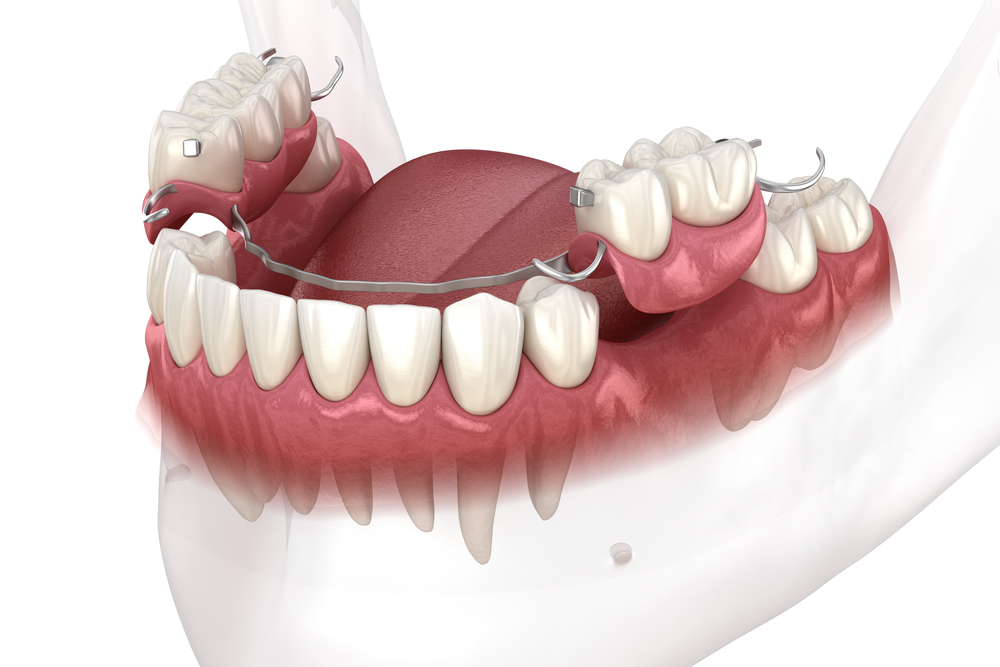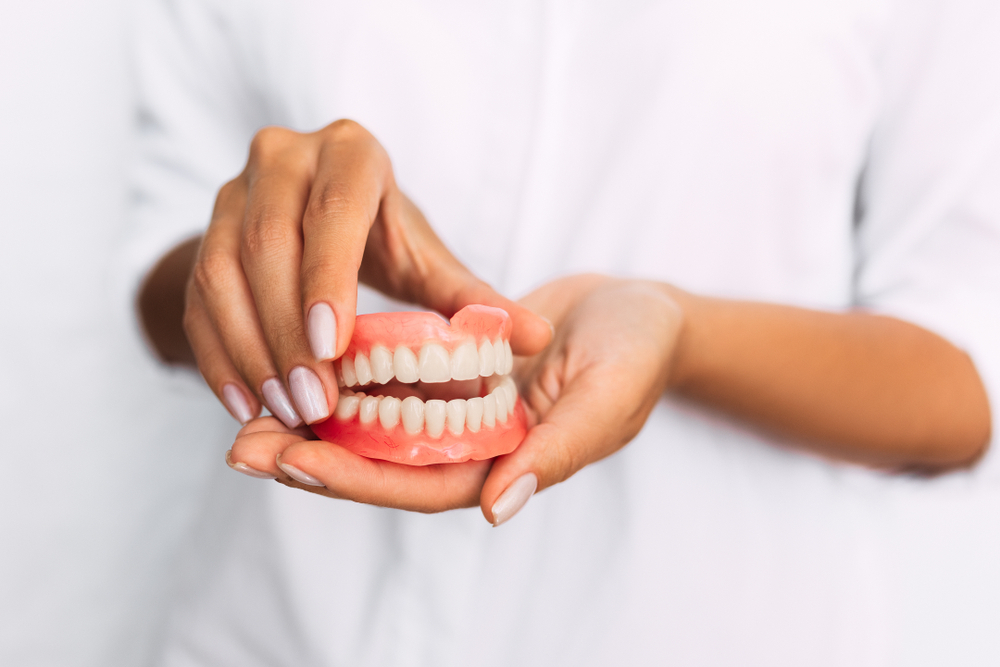Dentures are a solution worth looking into if you have difficulty chewing specific kinds of food. Dentures can improve one’s ability to properly chew and bite. If you are missing teeth, it may be difficult for you to eat certain foods since certain foods require a significant amount of chewing. This is because certain foods require a lot of breaking down before being swallowed.
Flexible dentures greatly enhance your ability to chew food by effectively replacing any missing teeth and expanding the area of your mouth that is used to bite down on food.

Which Denture type is best for you?
The field of dentistry has seen a lot of progress in recent years. Dental labs are able to digitally create them, and dental implants can be used to secure them. Dentures made with digital fabrication technology require fewer modifications to ensure a comfortable fit in the mouth.
The most common denture types now in use in dentistry are as follows:
Fixed Dentures
Fixed dentures, also known as metal dentures, are normally produced only when the gums and teeth have healed completely. For longer-term use and durability, temporary instant acrylic dentures can be replaced with metal frame dentures.
Denture designs can be thin in some situations, and if constructed of plastic, they can shatter quickly. Metal dentures are indicated for the required strength in each situation. They also provide more stability for lower jaw gaps than their lightweight plastic counterparts.
Benefits:
- The metal framework provides more stability and grip.
- Clasps are more readily tightened for a more exact fit.
- In comparison to plastics, a metal base offers greater durability.
- Metal base dentures do not collect buildup as easily, making them more hygienic.
Removable Dentures
One less expensive and time-consuming option is to have removable dentures, which will restore your smile and let you eat and speak normally again.
In most cases, complete dentures are used to replace a full set of natural teeth on either the upper or lower jaw.
Benefits:
- Removable dentures are one of the inexpensive tooth replacement options.
- Restore mouth function and preserve face contour.
- Within weeks of your initial dentist visit, custom dentures can be designed and worn, helping you smile and chew sooner.
Partial Dentures
Removable partial dentures typically use a gum- or pink-colored plastic base to conceal the prosthetic teeth. The area of your mouth that is bothering you due to tooth loss and the inability to eat, bite, or smile normally can be repaired with flexible partial dentures.
A partial denture will be custom-designed by your dentist based on your needs.
When it comes to connecting to your teeth, a cast metal partial denture has a metal structure and clasps, or it may have more aesthetically pleasing connectors. There are situations where a precise attachment is used to secure a removable partial denture to your natural teeth. Find mandibular partial dentures to glitter dentures at Tanaka Dental Labs.
Benefits:
- Improve your oral health
- Budget-friendly
- No surgery required
- Builds confidence
Hybrid Dentures
An implant-supported hybrid denture is a type of denture that is secured in position within the jawbones via dental implants. Completely edentulous patients are increasingly turning to implant-supported overdentures as a viable treatment alternative. In addition to improving retention, stability, functionality, and aesthetics, it maintains the jawbone or residual bone.
Hybrid dentures, like removable dentures, are supported by the tissues and teeth. However, removal from the dental implant is not possible without the aid of an implant specialist due to the screwed-in nature of the elements.
How Are Dentures Made Today?
Dentures, along with a wide variety of other restorative treatments, have gained significant benefits from the technological advancements that have been made in the field of dentistry. When receiving dentures, it is crucial to consider both the clinical aspect and the digital process involved in creating dentures at a dental lab.
Dentures can now be fabricated digitally from start to finish, thanks to the development of a technology known as T-scan. The old molds can be replaced with 3D scans that accurately replicate the features of the patient’s mouth, ensuring premier dentures at Puche Dental Laboratory. After that, the data offered by the digital technology is utilized in the process of designing and printing the dentures.
How long does it take for a partial denture to settle?
It is vital for partial denture individuals to get accustomed to having a new dental device in their mouth when they first put on their new dentures. When new dentures are first placed in the mouth, they can seem thick, which is unusual for most individuals. It may take three to nine weeks to adjust to wearing new dentures. The majority of new denture patients claim that it only took them three to four weeks to adjust to their new dentures.
Because getting used to wearing partial dentures takes time, new denture users should practice eating and conversing at home before venturing out in public. This will boost their confidence when interacting with others.
___________________________________________________________________

